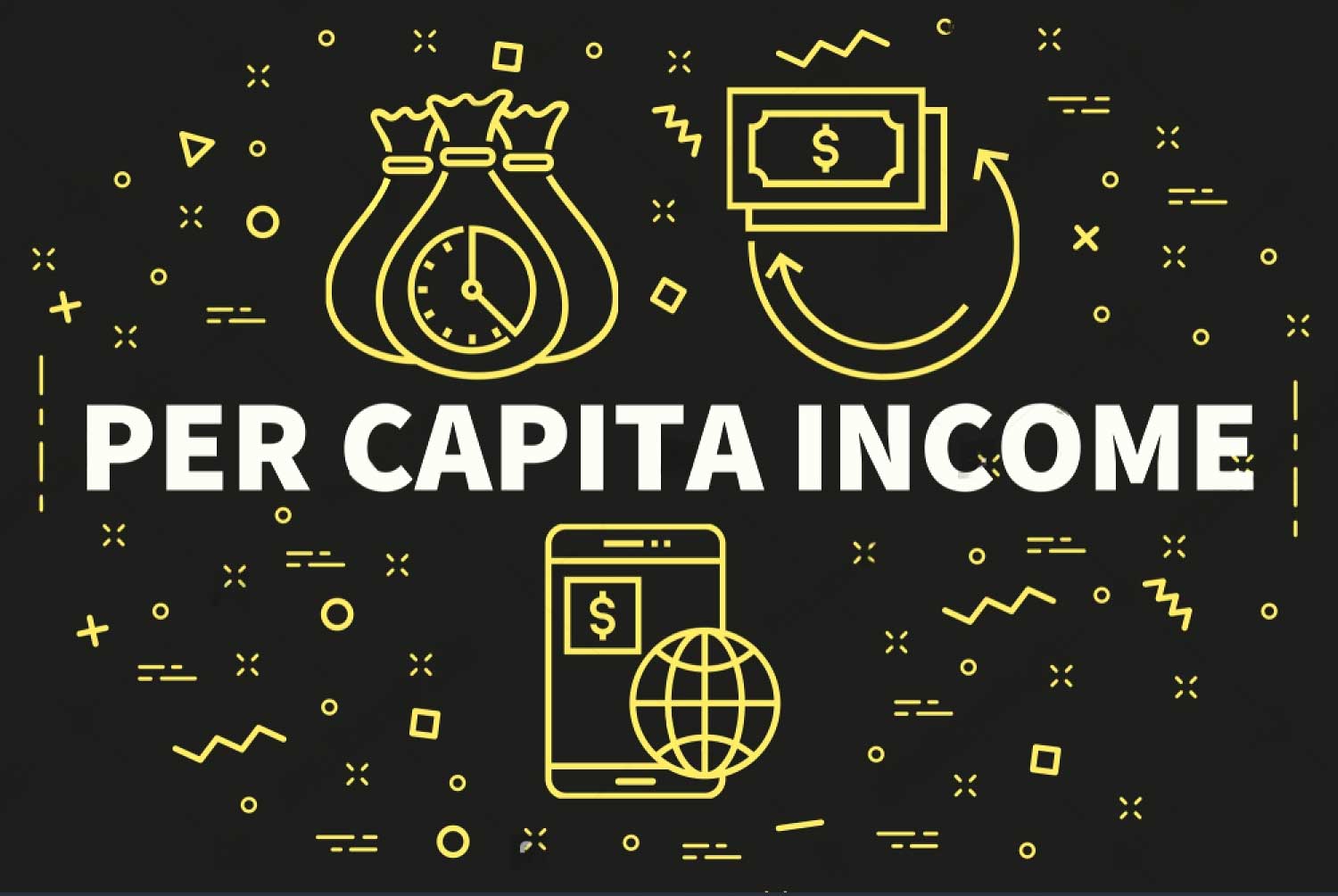Income per capita measures the average income earned per person in a country. It is calculated by taking a country’s total national income and dividing it by the population.

Per capita income indicates the economic productivity and prosperity of a nation on a per person basis. It is used to compare living standards over time, assess economic well-being between countries, and evaluate economic and social development.
For policymakers, per capita income helps identify growth opportunities and weaknesses. For businesses, it signals market potential and spending power. For citizens, it reveals the average economic benefit per person from the national economy.
Higher per capita income suggests greater ability to consume, save, invest and enjoy economic security. It is linked to other development indicators like life expectancy, education levels, and quality of life.
Calculating Nigeria’s Per Capita Income
Nigeria’s income per capita is determined by taking total national income and dividing by the population. The main measures used are:
Gross Domestic Product Per Capita
Gross Domestic Product (GDP) represents the total value of finished goods and services produced within a country.
According to the World Bank, Nigeria’s GDP in 2022 was $480 billion. With a population estimated at 216 million people, this equals a GDP per capita of:
$480 billion GDP / 216 million people = $2,222
So each Nigerian citizen generated approximately $2,222 of economic output on average.
Gross National Income Per Capita
Gross National Income (GNI) measures all income earned by a country’s residents and businesses, including from foreign sources.
Nigeria’s GNI per capita may differ from its GDP per capita based on income flows like remittances and overseas corporate profits.
For 2021, Nigeria’s GNI per capita was $1,910 (World Bank). This was below its GDP per capita of $2,037 for the year.
Trends in Nigeria’s Per Capita Income Over Time
Looking at historical patterns shows Nigeria’s economic development path:
- Early 1970s: Per capita GDP rose from $260 in 1970 to $950 in 1980, as oil production and revenues expanded.
- Late 1990s: Declined from $1,200 in 1990 to $900 in 2000, largely due to lower oil prices and unstable governance.
- Early 2010s: Rebounded to over $3,000 per capita by 2014 before falling again.
- 2020: COVID-19 triggered a recession, dropping GDP per capita below $2,000.
- 2021: Partial recovery to $2,037.
Overall, volatility in global oil markets has impacted incomes, along with rapid population growth averaging 2.5% annually. This has constrained per capita income increases.
How Nigeria’s Per Capita Income Compares
With estimated GDP per capita of $2,037, Nigeria ranks below regional and global peers:
- Sub-Saharan Africa average: $1,600
- South Africa: $5,800
- India: $2,100
- Global average: $11,400
- United States: $63,500
This gap indicates Nigerians on average have lower income and consumption levels compared to other emerging and advanced economy populations.
Key Drivers of Nigeria’s Per Capita Income
While oil dominates exports, Nigeria’s economy is more diversified, with services contributing over 50% of GDP:
- Oil sector: approximately 7% of GDP
- Wholesale and retail trade: around 18%
- Real estate: approximately 7%
- ICT and telecoms: about 12%
Increasing productivity across agriculture, manufacturing, services and other sectors will create jobs and income growth. Leveraging Nigeria’s large youth population is also vital.
However, regional inequality remains high. Per capita income in northern states lags far behind southern urban centres like Lagos. Targeted investments in health, education and social spending can develop human capital.
Stronger governance and economic institutions are also essential to translate Nigeria’s vast resource potential into higher living standards for all citizens.
Comparing Urban vs Rural Income
Per capita income in Nigeria varies widely between urban centres and rural areas:
- Abuja (capital city): per capita GDP of $8,658 (2016 est.)
- Lagos (commercial hub): $4,333
- Rural Nigeria average: $764
Such discrepancies highlight the inequality between prosperous cities and poorer agricultural areas. Spreading development and opportunity nationwide is crucial.
Future Outlook for Income Per Capita
The IMF forecasts Nigeria’s GDP per capita could rise moderately to $2,530 by 2027 if key reforms are implemented, oil prices recover, and demographic pressures ease. However, downside risks remain.
Sustaining per capita income growth above population increases is challenging but vital for continued development. Policymakers face tough balancing acts maximizing GDP while distributing gains broadly across society.


